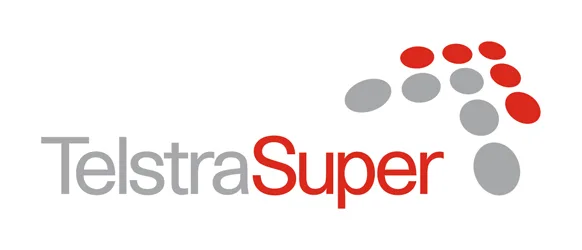6 financial tasks you should tackle before you retire

Gearing up for retirement? Make sure you do these 6 things before you clock out at the office for the last time.
 Sponsored by TelstraSuper. Now open to the general public, TelstraSuper can help you prepare for retirement with an award-winning, profit-to-member fund. T&Cs apply.
Sponsored by TelstraSuper. Now open to the general public, TelstraSuper can help you prepare for retirement with an award-winning, profit-to-member fund. T&Cs apply.
When it comes to our finances, it can be very easy to leave things in set-and-forget mode.
But when you're approaching the end of your working life, it's important to check in and make sure that you're setting yourself up for retirement.
So, make sure you make time for these financial tasks before you punch the clock at work for the last time.
1. Reassess your superannuation
Your super fund is an important part of the financial resources you'll have available in retirement.
It's important to take a close look at your superannuation and determine whether your current provider is going to deliver the returns you need to fund your preferred lifestyle.
The specifics of what you look for in a fund can vary quite a bit, but here are some broad guidelines for consideration
- Varied investment options. It's important to have access to a varied selection of investment options so that you can pick ones that align with both your financial goals, philosophical outlook and risk appetite. For example, TelstraSuper offers a wide range of investment options across a range of industries and asset classes.
- Informed advice. Very few of us are financial experts, so it's important that you're able to draw on those who are. So, if you can find a super fund that also offers access to formal advice, it can be very valuable for your financial future. To point to one example, TelstraSuper members can access personalised advice around financial and retirement planning.
- Historic returns. It's very important to remember that past performance is not necessarily a predictor of future performance among super funds. But it also makes sense to look for a company that has a good track record of managing its customer's retirement funds responsibly and competitively. As an example, TelstraSuper has won a range of industry awards over the last 3 decades for its long-term performance.
- A good balance of fees and services. Although the temptation is to look for the lowest possible fees, this won't guarantee the best possible returns. Rather, look for a super fund that offers an effective blend of good services for the fees. For example, TelstraSuper offers a range of insurance options as part of its super products.

2. Get the most out of your savings
Last year, Finder research found that 62% of Australians were concerned about not having enough savings for retirement. That's a worrying figure.
The good news is that there are steps you can take to boost your savings before you retire.
Pursuing investments actively, shifting to a higher-interest savings account or looking at term deposits are just some of the options available.
However, everyone's situation is different, and we'd suggest that you seek advice from a professional before pursuing a particular course.
But by taking steps to boost your savings now, you can have a much more comfortable retirement down the line.
3. Check your phone plan
Phone plan inclusions, and phone technology itself, move very rapidly.
So regardless of whether you feel your current phone plan is meeting your needs, it's worth comparing your options at least once a year.
This way, you'll be able to ensure that you're not overpaying or being short-changed on important considerations like data or international calls.
4. Compare utility providers
Given the overall rise in the cost of living over the last couple of years, utilities are an area where it's possible to make significant savings by switching.
Utility providers should be checked at least once a year in order to ensure that you're getting the best possible deal for your household needs.
Given the increased number of energy suppliers in Australia over recent years, there's no reason to get stuck with a company that's charging excess amounts.

5. Re-do the household budget
One of the big things that will likely change when you retire will be the household budget.
Expenses change when you retire. You may well have paid the house off by now – or be about to – and you probably won't be spending as much on items like work travel or work clothing.
But you'll probably be spending more on things like entertainment, vacations and other activities. With age, medical expenses can be more of a consideration too.
Additionally, rather than having a steady pay cheque, you'll be managing the funds from your superannuation, and potentially, a pension.
All of these shifts require quite a bit of financial discipline, so before you retire, it's worth laying out a new household budget. This will help you clearly identify where your priorities lie and how you might need to shift them around to match your assets.
6. Review or apply for a new credit card before you retire
If you're looking at applying for a new financial product – such as a credit card – it's often worth doing so before you retire.
Unfortunately, many financial institutions are reluctant to greenlight financial products to retirees, irrespective of their actual wealth and assets. It's not really a fair approach – but that doesn't mean it's uncommon, either.
However, you can often work around this by applying prior to your actual retirement.
You'll be able to demonstrate to the provider that you still have a steady income, which increases the likelihood of approval.
In this way, you'll have an easier time locking in the financial tools you need, before you require them.

Learn more about TelstraSuper
Compare other products
We currently don't have that product, but here are others to consider:
How we picked these
The information in this table is based on data provided by SuperRatings Pty Limited ABN 95 100 192 283, a Corporate Authorised Representative (CAR No.1309956) of Lonsec Research Pty Ltd ABN 11 151 658 561, Australian Financial Services Licence No. 421445. In limited instances, where data is not available from SuperRatings for a product, the data is provided directly by the superannuation fund.
*Past performance data and fee data is for the period ending December 2025
Finder Score for super funds
Finder Score makes comparing superannuation products easier by scoring products out of 10 after assessing their performance, fees and features.
We assess products from over 40 providers based on their risk profile.
3462-8819-6640, v. 1 Image: Getty Images
